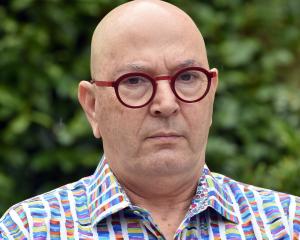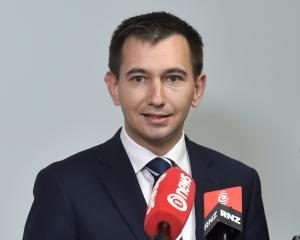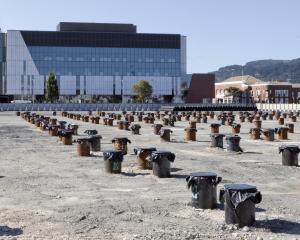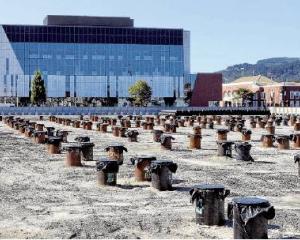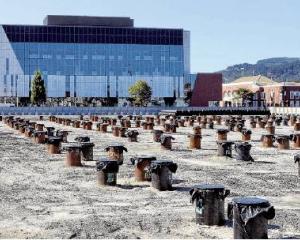

Otago Clinical Skills Laboratories (OCSL) clinical director Dr Ohad Dar said he had been involved in the interprofessional learning centre (ILC) project for three years.
He chaired the simulation user planning team, focusing on the design and development of a 1400-1500sq m simulation centre to be housed within the ILC.
"From my perspective this is a generational opportunity loss for Dunedin and risks putting Dunedin further behind in regard to simulation-based education, which is becoming a standard of health professional training and education."
Simulation-based education and training had many benefits.
It could be used to improve individual clinical skills, train health teams to work more effectively together, maintain operational readiness for a variety of clinical emergencies and maintain institutional memory of adverse events.
New guidelines could also be developed and tested using this approach, and had been used to this way throughout the Covid pandemic.
It also led to an improved work culture and better health staff recruitment and retention, he said.
Te Whatu Ora Health New Zealand (HNZ), the University of Otago and Te Pūkenga announced last week the ILC, intended as a collaboration between the three groups, had been dropped indefinitely.
HNZ said $17 million remained set aside for the ILC in the new hospital’s budget, but the budget for the centre had more than doubled over the past three years, from an estimated $50 million in 2020 to more than $130 million today.
Scrapping the ILC comes after the Government last year announced $90 million in cuts to address a budget blowout for the new tertiary hospital, which Health Minister Dr Ayesha Verrall then reversed by $10 million in April.
Dr Dar said the OCSL - a joint venture between the Otago Medical School and HNZ - had gained funding for two simulation educators just over a year ago, and described the success of the approach.
"Our team is purposefully interprofessional and now includes medical, nursing and physiotherapy [simulation] educators.
"We quickly developed simulation programmes that run regularly throughout the hospital.
They were especially proud of the "new to practice" programme for health professionals in their first two years of practise, which they believed was unique in the country.
"This is a weekly simulation-based event open to doctors, nurses, allied health and healthcare assistants to practise common medical emergencies.
"I am not sure if the public have a real sense and appreciation of what has been lost here."
This follows comment yesterday by former dean of the University of Otago Dunedin School of Medicine Dr John Adams that scrapping plans for the ILC was "appallingly short-sighted".
New Zealand Nurses Organisation (NZNO) southern delegate Linda Smillie said student nurses, healthcare assistants and nurses would have had opportunities to use the centre.
However, it would not have the direct impact on patients the PET scanner that had been cut would have, and the NZNO was urgently trying to get the Government to reinstate the scanner.
A modern tertiary hospital was important to the NZNO, whose petition against the hospital cuts has so far gathered more than 18,000 signatures, including 16,000 on the online version at change.org.





